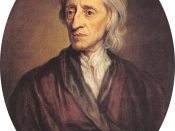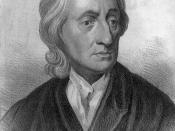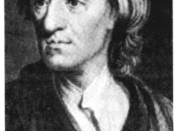� PAGE �5�
Running Head: JOHN LOCKE
John Locke
[Writer name]
[Institute name]
�
Introduction
The particular instance of it is attested by many undoubted witnesses." This degree of probability, while less certain than the first degree, we tend to have confidence in, and will generally be willing to act on as if it were fact.
Discussion
Shaftsbury provided for Locke a series of minor government appointments. In 1669, in one of their official capacity, in 1675 after the Liberal Shaftsbury lost that power, Locke went to France. In 1679 he returned to England, but because of his opposition to Roman Catholicism favors the English monarchy at the time, he soon found it expedient to return to France. From 1683 to 1688 he lived in Holland, and after the so-called Glorious Revolution of 1688 and the restoration of Protestantism favors, Locke returned to England again (Armitage, 2002). The new king, William III, Locke was appointed to the Board of Trade in 1696, a position from which he resigned because of ill health in 1700.
He died October 28, 1704 Oates.
On the human mind is the masterpiece of the great philosopher John Locke freedom. Nearly twenty years in preparation Locke began working on an essay in 1670 after a series of philosophical debate, during which he and his friends decided that "it was necessary to examine our own abilities, and see what objects our understanding was, or was not, equipped to deal with. "What it is and is not possible for us to know and understand (Armitage, 2002). "My goal," says Locke, "to investigate the origin, certainty, and extent of human knowledge, together with the grounds and degrees of belief, opinion and consent."
Thus, the aim is not to achieve certainty, but to see how much weight we can assign...


